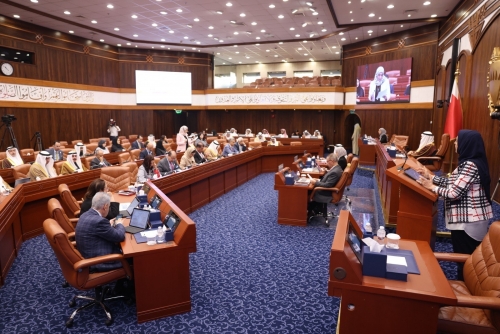Shura Council Committee rejects stricter expat hiring conditions for public sector
TDT | Manama
Email: mail@newsofbahrain.com
A proposal to impose stricter conditions on hiring expat public sector employees — including a master’s degree requirement and mandatory training of Bahraini replacement — was rejected by the Shura Council’s Legislative and Legal Affairs Committee, despite being approved by Parliament last October.
The proposal, scheduled for debate and vote on Sunday, aimed to prioritise Bahrainis in government jobs, called for foreign employees to hold a master’s degree and have at least 10 years’ experience.
It also sought to cap contracts at two years, with a single renewal allowed, contingent on approval by the Civil Service Bureau, and required that Bahraini workers be trained during the contract term.
While Parliament endorsed the plan as a way to address unemployment and strengthen the local workforce, the Shura Council committee argued that the measures were both redundant and impractical.
Foreigners
The committee report pointed out that current laws already ensure foreigners can only be hired if no qualified Bahraini is available.
The regulations, enshrined in Article 6 of the Executive Regulations, also require appropriate qualifications for each role, allowing flexibility based on specific needs.
Imposing a blanket requirement for a master’s degree, the committee noted, would not only increase costs but could also limit the pool of candidates for specialised technical positions, such as those in cybersecurity or artificial intelligence.
Concerns
The Civil Service Bureau shared similar concerns during discussions, highlighting the success of its current localisation strategy.
Since 2019, the number of foreign public sector employees has dropped by 23 per cent, from 7,582 to 5,800, with most still employed in essential roles in health and education.
Moreover, all heads of human resources departments in government entities under the bureau’s remit are now Bahraini nationals.
Existing framework
The bureau emphasised that these achievements show the existing framework is working as intended, prioritising Bahraini talent while addressing the limited cases where foreign expertise is necessary.
The committee also took issue with the draft law’s rigid structure, which it said would hinder the Civil Service Bureau’s ability to adapt to labour market needs.
Current laws delegate procedural specifics to executive regulations, which provide the flexibility required to ensure public services run smoothly.
Unnecessary constraints
The proposed changes, by contrast, would place unnecessary constraints on hiring practices, creating inefficiencies and increasing costs. The government also weighed in, arguing that employment conditions are best managed through executive regulations rather than fixed legislation.
It cautioned that imposing additional restrictions could result in staffing shortages in vital sectors and disrupt service delivery, particularly in healthcare and education.
Draft law
Although the committee found the draft law to be constitutionally sound, it concluded that its provisions duplicated existing policies and would create more problems than they solve.
Members noted that Bahrain’s current approach aligns with employment practices in neighbouring countries, which also treat foreign hiring as an exception and rely on flexible regulations to govern the process.
Related Posts

